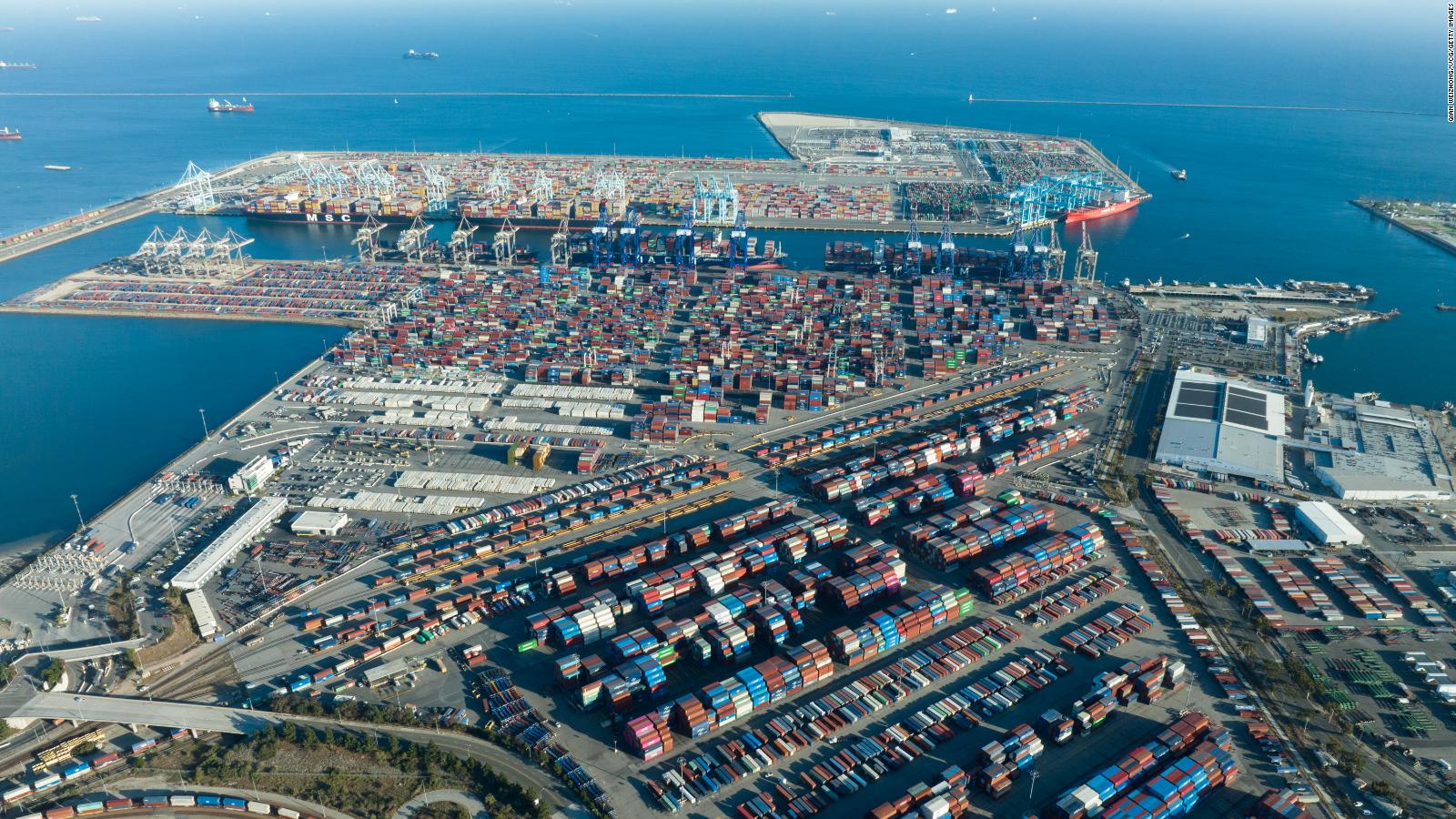Increases in Visa and Mastercard "slip rates" would increase prices in stores 1:10
London (CNN Business) --
One of the many buzzwords at Davos this week is "fragmentation," a force that economists have warned could have "devastating human consequences."
By "fragmentation," they mean the breakdown of the kind of free, cross-border trade and investment that has defined the global economic order for the past three decades.
It is a form of deglobalization: the reconstruction of fences around national or regional fiefdoms.
The forum in Davos is back and the world has changed.
Has the world elite noticed?
"Fragmentation is the feeling that economies may be shielding themselves a little more internally, and that could slow things down," Josh Lipsky, director of the Atlantic Council's Center for Geoeconomics, told me.
"And then it can make things more expensive."
It's not a new topic, of course, supply chain disruptions accelerated with the start of the pandemic more than two years ago, but the war in Ukraine, growing political divisions and persistent trade disputes are renewing concerns about the return to an era of isolationism.
"Decisions by businesses and governments are expected to lead to further fragmentation of the global economy and unprecedented shifts in supply chains, creating a perfect storm of volatility and uncertainty," wrote a group of chief economists surveyed by the World Economic Forum.
"These patterns are expected to create more middle-of-the-road solutions and hard choices for policymakers, and, without greater coordination, staggering human costs."
Before Davos Forum attendees had a chance to make it to their first happy hour of the week, the world got to see the micro-fragments happening in real time:
advertising
Chinese ride-sharing giant Didi, which is downsizing its once-grand global ambitions, has officially delisted its shares from the New York Stock Exchange.
Starbucks pulled out of Russia, following McDonald's last week, continuing the mass exodus of companies from the war in Ukraine.
Russia's foreign minister said the West had taken a "dictatorial position" and that Moscow must strengthen ties with China.
Airbnb said it would remove all of its listings in China, citing "expensive and complex" operating restrictions linked to the COVID-19 lockdowns.
Malaysia moved to restrict chicken exports to its neighbours, saying "the government's priority is our own people".
Economists are clearly worried about a rollback to polarized East-West models of trade and production.
The shortage of infant formula in the United States is a public health crisis that illustrates the danger of relying too heavily on domestic production of essential goods.
And while globalization has its drawbacks, it has tripled the size of the world economy and lifted 1.3 billion people out of extreme poverty, according to the International Monetary Fund.
Huawei, the Chinese telecoms giant, is another prominent example of how political polarities have contributed to fragmentation, says Xiaomeng Lu, director of geotechnologies at Eurasia Group.
"There's definitely a trust issue for both Chinese and US companies... You can also see Microsoft slowly winding down its practice in China."
One step back: Fragmentation is not just about trade.
It also has to do with finances and the supremacy of the US dollar.
"Given the moves the West has taken against Russia, there is serious talk in some economies, including China, of reducing dependence on the dollar," Lipsky told me.
The West has grown accustomed to dollar dominance, and investors need to be aware that a change is taking place.
The dollar continues to make the world go round, on networks like SWIFT, which are controlled by the West, but digital currencies could offer an alternative.
To be clear: this will not happen overnight.
"These supply chains have been built over 30 years, so they can't be moved to another country," says Lipsky.
"Check back at Davos 10 years from now and see how different the world economic system is. It doesn't mean there isn't a desire to change, but actually doing it is much more complicated."
Davos ForumInflation

